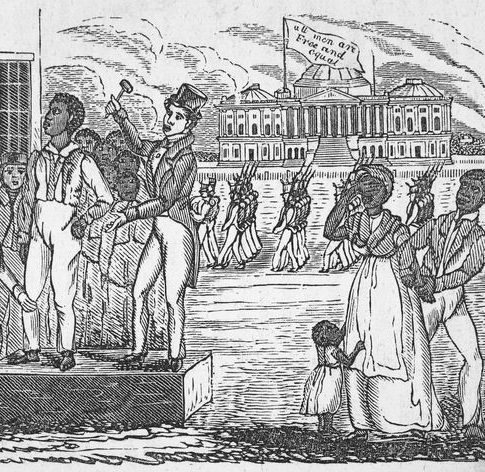
by Richard Subber | Dec 26, 2022 | American history, Book reviews, Books, History, Politics, Power and inequality
money did a lot of the talking…
Book review:
The Founders’ Fortunes:
How Money Shaped the Birth of America
by Willard Sterne Randall
New York: Dutton, an imprint of Penguin Random House LLC, 2022
324 pages
Randall offers details about the wealth—and intermittent lack thereof—of a number of the so-called “Founding Fathers,” and how persistently those men looked out for their own financial interests throughout the Revolutionary era.
Presumptively you aren’t surprised to learn about these details.
There’s plenty more to learn when you read The Founders’ Fortunes.
The matter-of-fact point is that these men were looking out for themselves at the same time that they were creating the independent United States of America.
* * * * * *
Book review. Copyright © Richard Carl Subber 2022 All rights reserved.
Book review: An Empire Divided
King George and his ministers
wanted the Caribbean sugar islands
more than they wanted the 13 colonies…
by Andrew Jackson O’Shaughnessy
–
Seeing far: Selected poems with 47 free verse and haiku poems,
and the rest of my poetry books are for sale on Amazon (paperback and Kindle)
and free in Kindle Unlimited, search Amazon for “Richard Carl Subber”
* * * * * *
by Richard Subber | Dec 25, 2022 | Human Nature, My poetry, Poetry, Reflections
doing the right thing is easy…
A man’s job
I won’t sell my trees.
The balsams would go quickly
at “cut your own” prices,
but I tell my neighbors, again this year,
there will be no cutting
on this old slope that spills down
to my little barn.
Day is darkening,
and I move among my trees.
This one, bent and broken
in last winter’s snows,
has grown,
the birds of spring may nest
in its green spaces…
and now, from below,
the boy climbs to me, his head down,
his father’s axe in hand,
he has changed since his father died,
he tries to do a man’s work,
he will have little time
for baseball with the other boys.
“I told Momma I would find a tree,
to make a Christmas for Becky and the baby.”
So.
He holds his axe in both hands,
and he stands straight in my field.
I extend my arm.
“Go find a good one,
I can help you carry it home.”
December 1, 2018
My poem “A man’s job” was published in my third collection of 64 poems, In other words: Poems for your eyes and ears. You can buy it on Amazon (paperback and Kindle), or get it free in Kindle Unlimited, click here
* * * * * *
Copyright © Richard Carl Subber 2022 All rights reserved.
“…and dipped in folly…”
only Poe knows how to say it…
–
Seeing far: Selected poems with 47 free verse and haiku poems,
and the rest of my poetry books are for sale on Amazon (paperback and Kindle)
and free in Kindle Unlimited, search Amazon for “Richard Carl Subber”
Your comments are welcome—tell me what you’re thinking.
* * * * * *

by Richard Subber | Dec 21, 2022 | Joys of reading, My poetry, Poetry
more champion stuff…
hula hope
She wanted to do it.
She wanted to keep the hula hoop around her hips,
and she knew it was supposed to go around
and around,
and she knew it wasn’t supposed to be on the ground.
She bent over to pick it up,
time after time,
imagining hope
as she hipped it again and again,
as she vainly tried to keep it whirling
and used her hands to make the thing
do what it’s supposed to do…
She didn’t understand that rhythm is work,
and hard work makes great rhythm,
and she had to give her energy to the hoop
so it could caress her little body,
and make her a champion.
August 2, 2022
Never too young to reach for the ring…
* * * * * *
My poetry. Copyright © Richard Carl Subber 2022 All rights reserved.
Book review: Cleopatra: A Life
…don’t even think
about Gordon Gekko…
by Stacy Schiff
–
As with another eye: Poems of exactitude with 55 free verse and haiku poems,
and the rest of my poetry books are for sale on Amazon (paperback and Kindle)
and free in Kindle Unlimited, search Amazon for “Richard Carl Subber”
Your comments are welcome—tell me what you’re thinking.
* * * * * *
by Richard Subber | Dec 19, 2022 | American history, Book reviews, Books, Democracy, History, Politics, Power and inequality
violence shut down the “Reconstruction”
Book review:
Splendid Failure:
Postwar Reconstruction in the American South
by Michael W. Fitzgerald (b1956)
Chicago: Ivan R. Dee, 2007
234 pages
Splendid Failure offers a shockingly realistic account of the so-called “Reconstruction” period after the Civil War. There was a lot more violence, much earlier in the time frame, than you probably know about.
The violence throughout the South was not successfully resisted by Northern forces after the war, and after the presidential election dispute of 1876, the Northern watchdogs withdrew their concern. Commercial and political interests asserted their primacy in the North.
Fitzgerald observes: “At the national level the Republicans were the party of economic growth” (p. 100).
The white elites who held the economic and political power in the South before the war basically regained their economic and political power after the brief period of nominally reformative so-called “Reconstruction.”
As we now know, the war and the so-called “Emancipation Proclamation” weren’t the end of the story.
* * * * * *
Book review. Copyright © Richard Carl Subber 2022 All rights reserved.
–
Seeing far: Selected poems with 47 free verse and haiku poems,
and the rest of my poetry books are for sale on Amazon (paperback and Kindle)
and free in Kindle Unlimited, search Amazon for “Richard Carl Subber”
* * * * * *

by Richard Subber | Dec 11, 2022 | American history, Book reviews, Books, History, Politics, Power and inequality
the former slaves were forgotten in the North…
Book review:
Reconstruction After the Civil War
by John Hope Franklin
Eric Foner, foreword
Chicago: The University of Chicago Press, 3rd edit., 1961, repr. 2013
Franklin changed the viewpoint of professional historians about the goals and failures of the Radical Republicans’ policies on “reconstruction” of the Confederate states after the American Civil War.
In the past historians reported the Reconstruction period as a politically motivated effort by Northern politicians to control the Southern states, with sometimes superficial attention to the concept and the abandonment of effectively giving millions of black Americans the right to vote.
Franklin’s thesis, in simplistic terms, is that contending political and business interests tried to pursue “reconstruction” to develop the economic capacity of the South, and the plight of freed slaves gradually slipped from the center of attention. The white folks who were leaders of the secession rather quickly resumed their control of the Southern states.
* * * * * *
Book review. Copyright © Richard Carl Subber 2022 All rights reserved.
Book review: Saint Joan
by George Bernard Shaw
–
My first name was rain: A dreamery of poems with 53 free verse and haiku poems,
and the rest of my poetry books are for sale on Amazon (paperback and Kindle)
and free in Kindle Unlimited, search Amazon for “Richard Carl Subber”
* * * * * *


